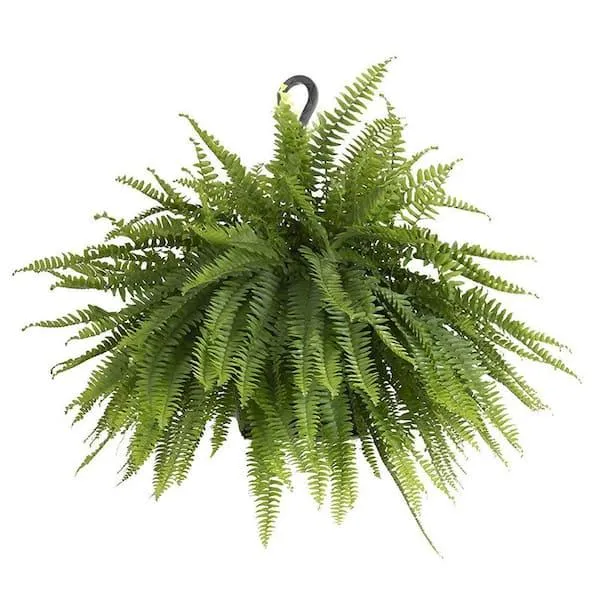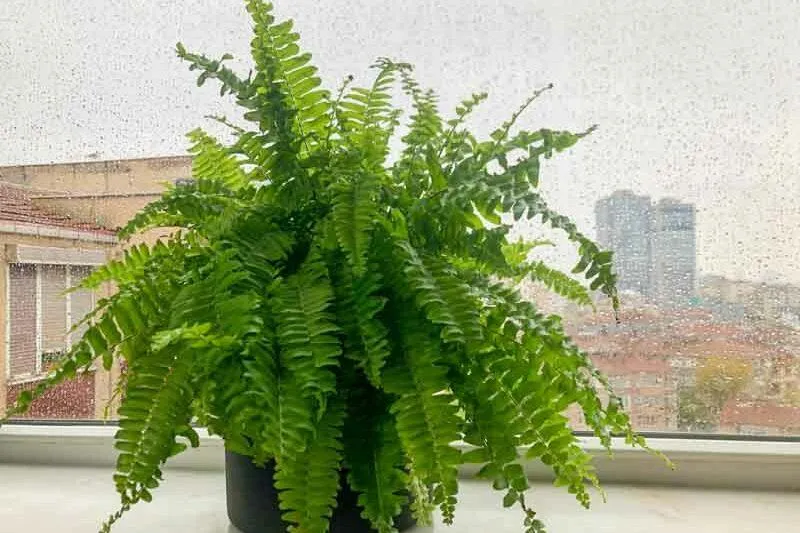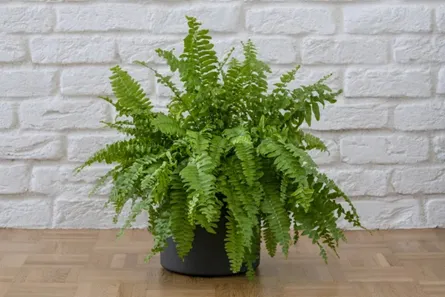Are Boston Ferns Safe for Cats?
Nephrolepis exaltata, commonly known as the Boston fern, is one of the most popular houseplants. Its lush foliage makes it a beautiful addition to any home. However, many cat owners wonder – is it safe to have a Boston fern if you have cats? In this article, I will answer all the questions a cat guardian may have about Boston fern safety.
Potential Toxicity
From my experience as a veterinary technician, the first thing any plant-owning cat parent asks is whether a plant is toxic to cats. All parts of the Boston fern – including the leaves, stems, and roots – are listed as non-toxic or unlikely to be toxic to cats by the ASPCA and American Humane. This means ingesting small amounts is generally not harmful.
However, like with any new food or object, it’s possible a cat may experience mild gastrointestinal upset from nibbling on a fern. The small amount of saponins (soapy compounds) in Boston fern foliage could potentially cause vomiting or diarrhea if eaten in large quantities. So it’s best to monitor kitty’s interactions with the plant and remove any parts they try to eat.
Potential Irritants
While Boston ferns themselves may not be highly toxic, there are some potential irritants cat parents should be aware of.
- Spores: The small spores released from a Boston fern freshening up could potentially cause respiratory irritation if a cat happens to inhale a large amount. So it’s a good idea to gently shake or wipe spores off leaves before placing the plant where kitty spends time.
- Sap: Like many other plants, Boston ferns contain a sticky sap that can irritate the skin of sensitive kitties. If your cat is an avid mouth-wiper or plant chewer, the sap could cause some itching or redness on paws or face.
In most cases, these potential issues are quite minor. But it’s always smart to keep an eye on your unique kitty’s behavior around any new houseplant addition, just in case of unexpected sensitivities.

Cat-Proofing Tips
While Boston ferns themselves may pose little toxicity risk to cats, the potential for irritation makes it a good idea to “cat-proof” the area if keeping one as a houseplant. Here are some tips:
- Place the fern high up, out of paw’s and tail’s reach. Cats can be surprisingly agile climbers! An tall bookshelf or table works well.
- Use a sturdy, bottom-heavy planter without holes for drainage. This prevents an inquisitive kitty from easily tipping it over or sticking a paw inside.
- Add pebbles or decorative gravel to the top of the soil. Cats are less likely to paw at prickly textures.
- Give kitty other engaging toys and scratching posts as alternatives to the fern. Positive redirection is key when kitty-proofing.
With some basic precautions, it’s certainly possible to peacefully coexist with a Boston fern even with feline family members around. The plant poses very little direct toxicity risk, so just use common sense when placement.
Individual Cat Differences
Of course, when considering cat safety, it’s important to remember that every kitty has their own unique personality. While Sally may leave the plants alone, mischievous Mittens may want to “leaf surf.” Watch your cat’s behavior and pay attention to any chewing, biting, or toppling attempts.
Cats with a history of ingesting non-food items may need an extra layer of protection from temptation. Kittens and active climbers are also more likely to interact with higher spaces. So weigh your specific cat’s traits when deciding if a Boston fern is a good fit for your home.
In summary, based on my experience as a veterinary technician, Boston ferns seem to pose low direct toxicity risk to cats when ingested. However, precautions can help avoid potential skin or respiratory irritation issues for sensitive kitties. With observant care and cat-proof placement, many feline families enjoy houseplants like Boston ferns decorating their homes.

Final Thoughts
So in response to a cat owner’s question – can Boston ferns be safely kept with cats? The answer appears to be yes, as long as some simple guidelines are followed.
While no plant is 100% foolproof cat-safe, the Boston fern ranks quite well on the scale. Minor potential concerns like spores or sap seem unlikely to cause major issues for most kitties. Preventing your cat from chewing leaves or eating soil helps take full advantage of the fern’s aesthetic appeal.
As with any new introductory, it’s wise to monitor closely at first. But based on the available research data and expert opinions from toxicology websites, keeping a Boston fern as a houseplant companion seems perfectly plausible even for multi-cat homes. Just be sure to consider each individual cat’s temperament and tendencies too.
In the end, having a beautiful, low-maintenance houseplant to enjoy doesn’t need to come at the cost of our feline family members’ safety. Simple steps can help pets and plants peacefully coexist indoors. With observance and care, Boston ferns can usually be a safe, stunning addition to any home – cat or no cat!
Nephrolepis Exaltata – Also Known as Boston Fern Care and Safety for Cats
| Common Name | Boston Fern |
|---|---|
| Botanical Name | Nephrolepis exaltata |
| toxicity | non-toxic to cats |
| light conditions | bright indirect light |
| water | keep soil moist, do not overwater |
| fertilizer | light feeding in spring and summer |
| temperature | 65-75°F ideal, protect from drafts |
| humidity | high humidity preferred, mist leaves |
FAQ
-
Is nephrolepis exaltata poisonous to cats?
Nephrolepis exaltata, also known as the Boston fern or swordfern, is not toxic to cats. However, like many houseplants, it’s best to keep it out of reach if your cat seems like the type who might nibble on foliage.

-
Can cats eat nephrolepis exaltata?
While the Boston fern itself is non-toxic, cats shouldn’t eat it. Their tummies aren’t made for digesting plants. At the same time, an occasional nibble probably won’t do any harm. I’d still try to discourage plant munching though, to protect your pet and your pampered plants!
-
Is the Boston fern cat-friendly?
Generally speaking, yes – Boston ferns are considered safe as far as household plants go. They won’t poison kitty if she gets into a chewing phase. That said, like any houseplant, it’s best to cat-proof it by placing it out of paw’s reach. Rubber plant leaves and palm fronds can be mildly irritating if eaten in large quantities.
-
What plants are toxic to cats?
Many common houseplants can cause problems if ingested by cats, including lilies, tulip and daffodil bulbs, oleander, and iris. Playing it safe is best. Check online plant toxicity lists or consult your vet about which greenery to avoid. I’ve heard spider plants and decorative grasses pose little risk, if any.
-
Can a Boston fern help clean the air?
Some research shows that certain plants may filter out toxins and chemicals in the air. The Boston fern is said to remove formaldehyde, which is used in construction materials like cabinets, flooring, and insulation. So a few of these ferns decorating your home might kind of, sort of help freshen the air a bit. It’s definitely no replacement for fresh air and ventilation though!
-
How do I care for a Boston fern?
To keep your Boston fern looking lush and lovely, water it whenever the topsoil feels dry. These ferns love humidity as well, so mist the leaves regularly or place the pot on a pebble tray with water. They grow best in medium to low light. Be sure the drainage holes allow excess water to escape. Follow those tips and your fern should thrive for years to come!

